The best air purifiers in 2021
Putting one or more of the best air purifiers placed in your house, apartment or office will filter out many of the most dangerous airborne particles. That’s especially true if you suffer from allergies, have pets who shed, live or work with a smoker or simply want to breathe more easily.
The best air purifiers may even provide some protection against airborne particles carrying the COVID-19 coronavirus, Consumer Reports recently found. That may be why some stores seemed to run out of stock during the height of the pandemic. If the model you like below isn’t available, it’s worth checking back in another week.
No device can completely get rid of air pollutants or be a substitute for clean outdoor air, says the Environmental Protection Agency. But the best air purifiers may indeed improve respiratory health.
“When used along with other best practices recommended by CDC and others,” the EPA says, “[air] filtration can be part of a plan to protect people indoors” from COVID-19.
That will be especially true if you suffer from pre-existing conditions such as asthma or from chronic allergies. Air purifiers with HEPA or “HEPA-like” filters will trap most airborne particles, including pet dander and pollen.
Airborne droplets expelled from the mouth or nose of someone infected with COVID-19 can also be taken out of the air, although the rate at which the air is cleaned depends on the specific model.
Some of the best air purifiers have pre-filters to trap larger pet hairs before they get to the main filter. Others use electrostatic attraction to trap very small particles or ultraviolet lights to kill bacteria and mold. And some use charcoal or carbon filters to trap petroleum-based gases.
What are the best air purifiers?
Our research examined more than 30 brands and dozens of customer and expert reviews, and we’ve come up with the best air purifiers for your home or office.
Our top pick is the Coway AP-1512 HH Mighty, a quiet model with a HEPA filter, prefilter, ionizer and odor filter. With its strong performance for the price (including the cost of replacement filters), this is the best air purifier for most people.
The best-looking air purifier is the Blueair Blue Pure 211+, which comes in five colors including yellow, blue and pink. It’s powerful, but a bit loud. It doesn’t have a HEPA filter but Blueair insists its filters are even better. (Consumer Reports said this is one of the best at cleaning a room of COVID-19 droplets.)
For tight budgets, we recommend the Levoit LV-H132 or the Blueair Blue Pure 411. Either will do nicely in your bedroom. There’s also the new IKEA Förnuftig, which is extremely affordable, although you may want to get more than one to see good results.
Parents of young children will like the PureZone 3-in-1 True HEPA Air Purifier, which is small, quiet and perfect for kids’ bedrooms. It can also be put on a timer to shut itself off while the little ones slumber.
If you don’t like changing filters, try the Austin Air HealthMate HM-400. Its filters last up to 5 years. It also filters out the the volatile organic compounds (VOCs) you’ll get from fresh paints, plastics and petroleum products.
Finally, if money is no object and clean air is critical to your health needs, the IQAir HealthPro Plus or the Coway Airmega 400 may fit the bill. Both are equipped to handle rooms of 1,000 square feet or more.
The best air purifier you can buy today

The Coway AP-1512 HH Mighty is consistently ranked among the best air purifiers on the market — and with good reason. It’s also one of the quickest to sell out at online and brick-and-mortar stores.
It’s reasonably priced for how well it works, it’s one of the quieter machines of its size, and it has most of the features we’d want in an air purifier, including a programmable timer, several fan speeds and a filter indicator light. As a result, it’s a bit hard to find in stock right now.
Replacement filters are fairly cheap and energy costs relatively low, which makes the Coway one of the least expensive air purifiers of its caliber to maintain year to year.
Finally, the Coway AP-1512 HH Mighty is easy on the eyes. It comes in sleek black or white and is relatively compact compared with many other purifiers of similar performance, so it simply fades into a corner.
The Coway Mighty is one of the only purifiers we considered that has an ionizing function. The effectiveness and safety of ion filters is questionable (due to possible ozone production), but you can just turn this function off.
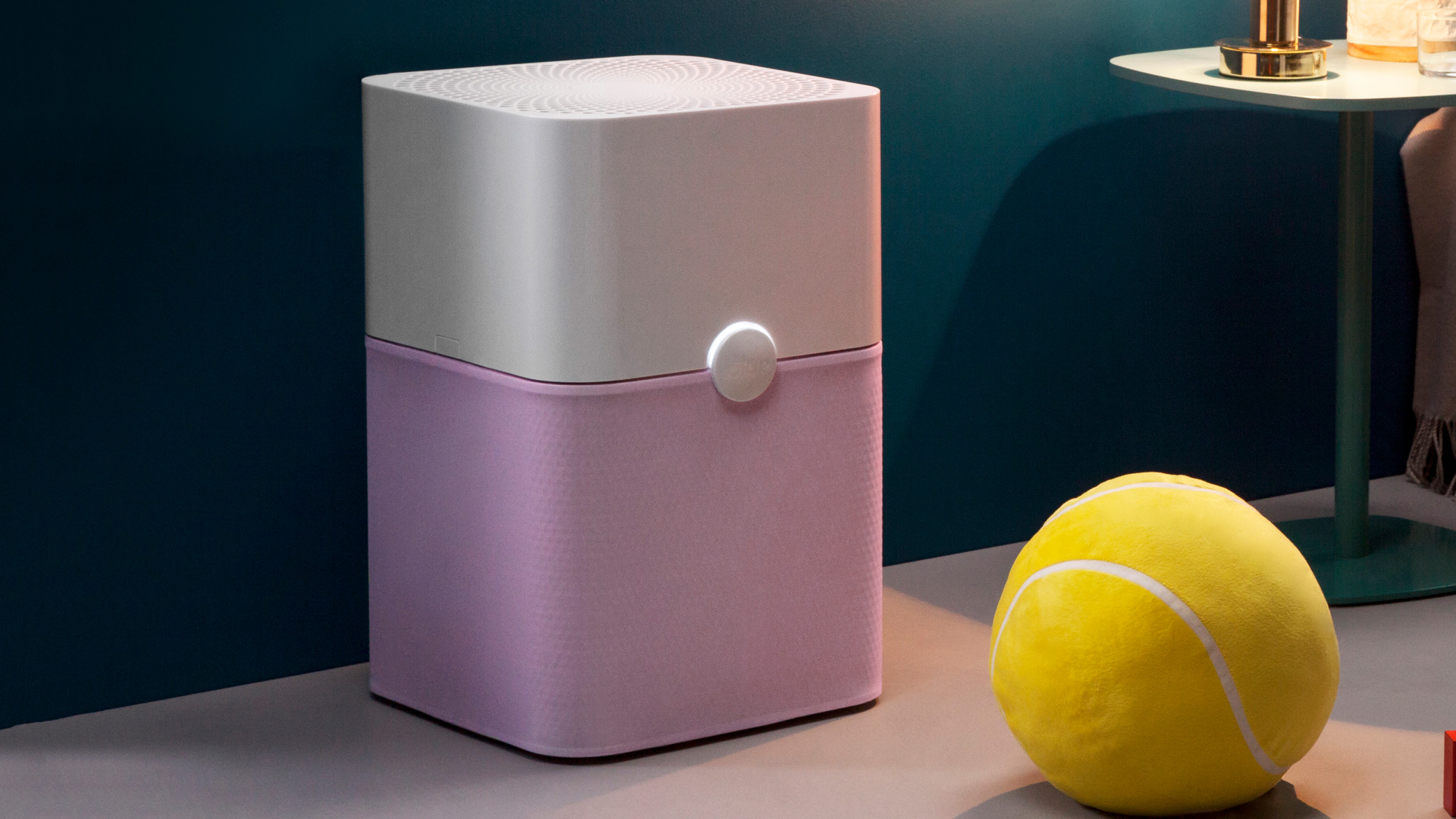
The Blue Pure 211+ is highly rated for its solid performance in removing dust, smoke and pollen from room air.
The Blueair’s filters aren’t true HEPA-certified, but they are still effective. They work by giving particles an electric charge, which causes those particles to stick to filter fibers.
The Blue 211+ pre-filter comes in five different colors, from eye-popping yellow to low-key gray, so you can customize the look for your space. The machine also has a filter indicator light to let you know when it’s time to replace your main filter.
Possible downsides of the Blue Pure 211+ include more noise on lower speeds compared with similar machines, and relatively high purchase and maintenance costs. For example, it draws more power than the Coway on similar speeds (though it moves more air) and it is a bit louder and more expensive (both upfront and over time).
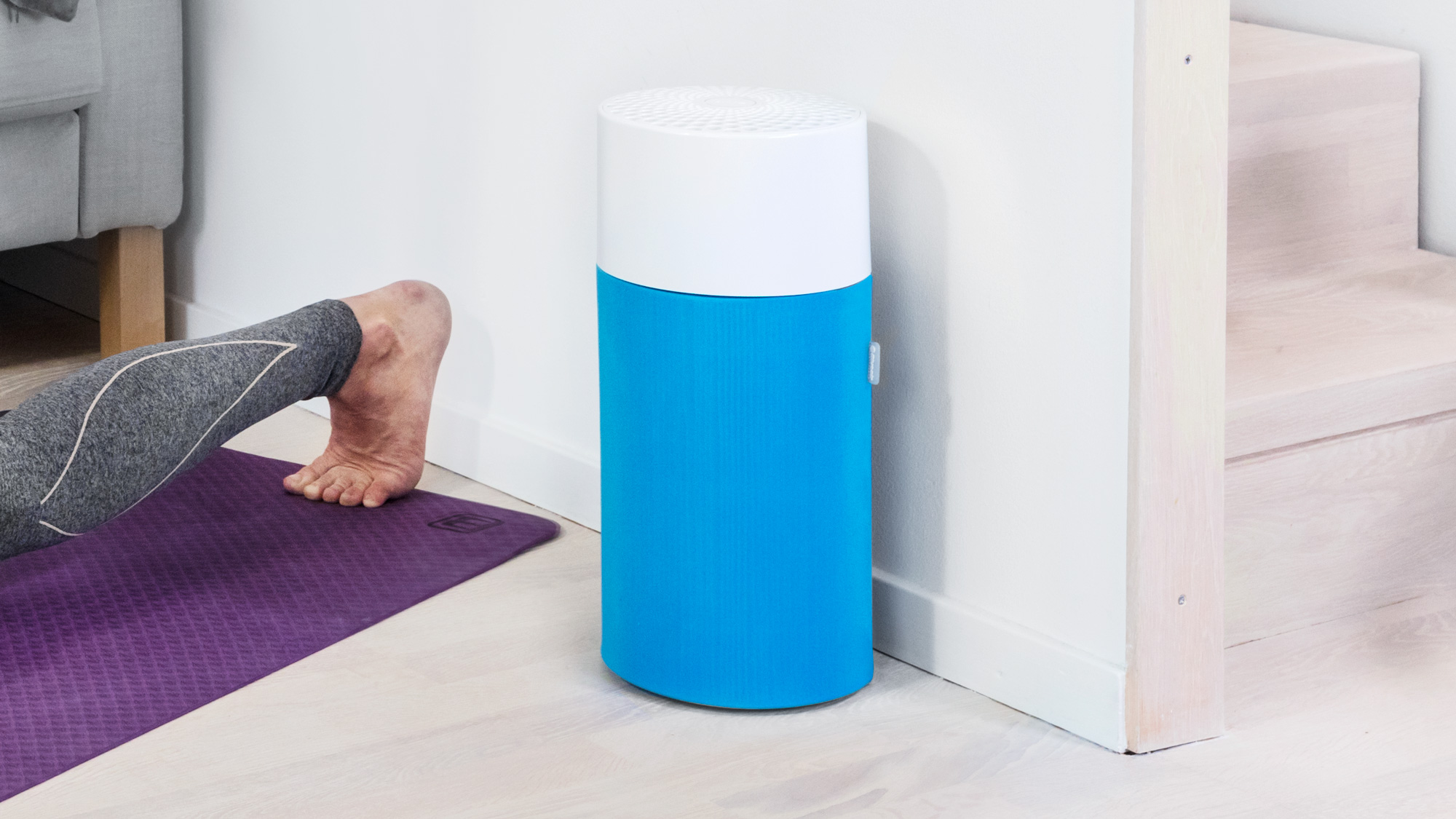
The Blue Pure 411 is like the 211+’s much smaller sibling. It uses similar filtering technology and features and comes in a variety of colors.
Where the Blue Pure 411 stands out is in price and efficiency. The purifier is inexpensive to buy (just over $100) and maintain (around $20 annually for replacement filters), and it uses significantly less energy than most other air purifiers we researched. The machine is also small, compact and quiet, making it a great choice for your bedroom.
The one thing to keep in mind is that if you plan to move your purifier from room to room, the Blue Pure 411 won’t be very effective in larger spaces.
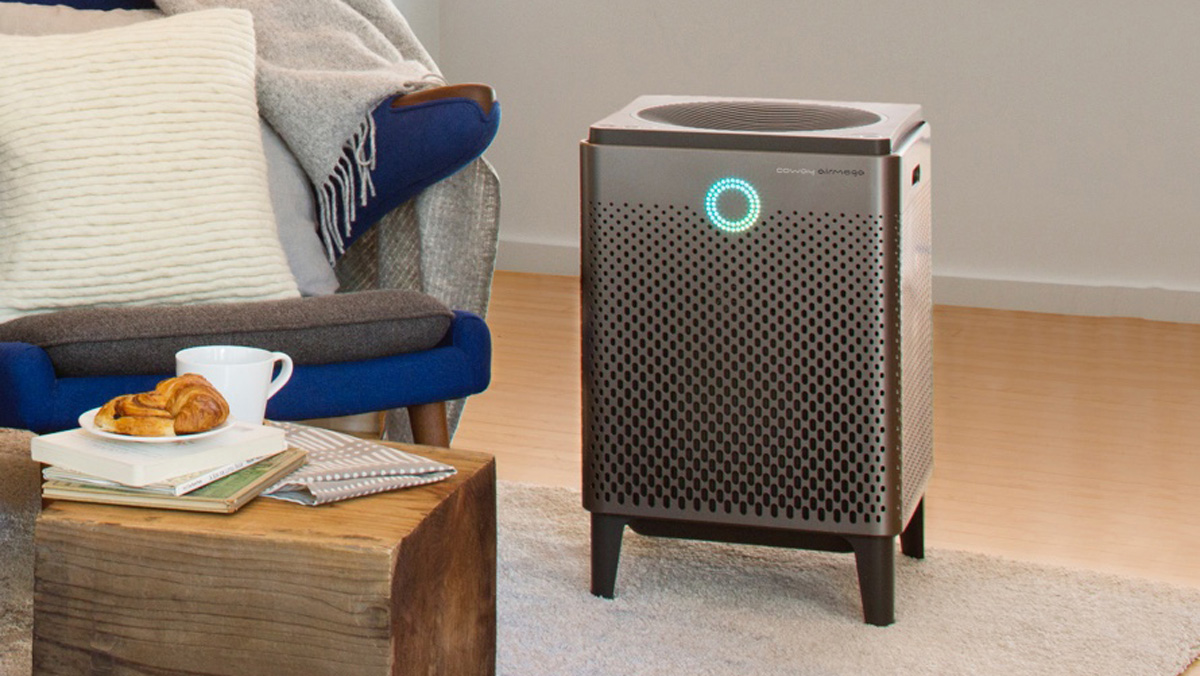
Coway’s Airmega 400 is a high-performing air purifier at a high price, but reviewers generally agree that the trade-off is worthwhile. The Airmega 400 has a dual carbon + true HEPA filter, which allows it to clean the air in a large space over a short period more effectively than other machines.
Coway claims the Airmega 400 is good for filtering rooms of up to 1,560 square feet, but you’ll likely get better performance in rooms that are half that size. If you put the purifier in a space up to the maximum recommended size, it’ll do two or fewer air changes per hour.
The Airmega 400 is large but sleek, and it has convenient features like a programmable timer and a display shut-off to minimize disruption during sleep. There’s also a “smart” version (the Airmega 400S) that you can integrate with an Alexa device or a mobile app.
Like its smaller cousin the Coway AP-1512 HH Mighty, the Airemega 400 was out of stock everywhere last time we looked. Hopefully, it will be available again soon.
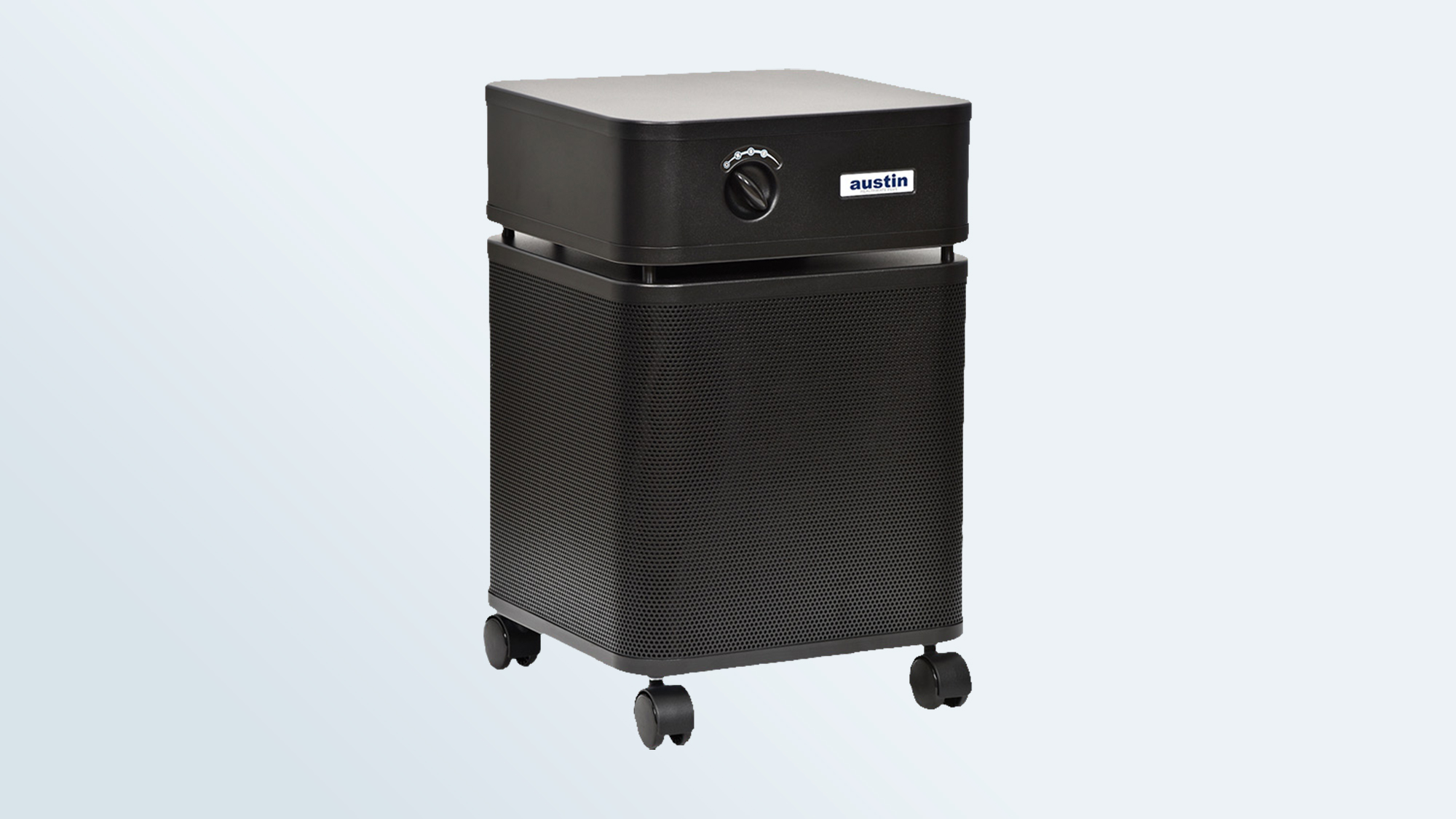
The Austin Air Healthmate HM-400’s main selling point is its high-performing and long-lasting filters, which handle everything from mold and pet dander to gas and chemical contaminants.
It isn’t CADR-tested, but it gets high marks from reviewers for filtering volatile organic compounds (VOCs) that come from household products such as paints, pesticides and air fresheners better than most other machines on the market.
In addition to being effective, Healthmate HM-400 filters last for up to five years. You can vacuum or clean the pre-filter periodically in that time as well.
Criticisms of the Healthmate HM-400 include a fairly time-consuming filter-replacement process as well as noisy medium and high fan speeds. The unit also doesn’t have some basic features (such as a programmable timer or filter indicator light) that you’d expect even at a lower price, and it’s fairly power-hungry.
While the Healthmate HM-400 is pricey, it’s a good option if you have particular concerns about chemicals and odors.
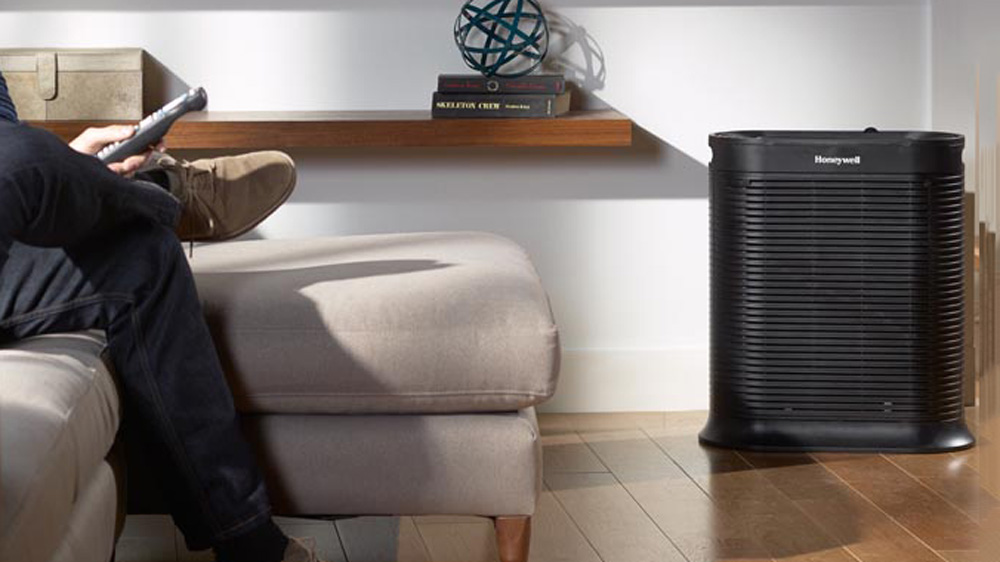
Honeywell air purifiers get decent reviews across the board, and the HPA300 is a good unit for a fairly reasonable price.
It has among the highest CADR ratings for smoke, dust and pollen of the units we recommend, and it can filter slightly larger rooms effectively. It also has four speeds (compared with three on most units), a programmable timer and adjustable control panel lights.
The HPA300 is also portable, so you can move it easily between rooms. The HPA300 is also quieter at higher speeds than some other units.
Where the Honeywell HPA300 could fall short is in its filter-replacement and maintenance requirements. Both the true HEPA filter and pre-filter are disposable and must be replaced every six to 12 months.The HEPA filter is actually three filters that reviewers said can be tricky to get in the exact right spot.
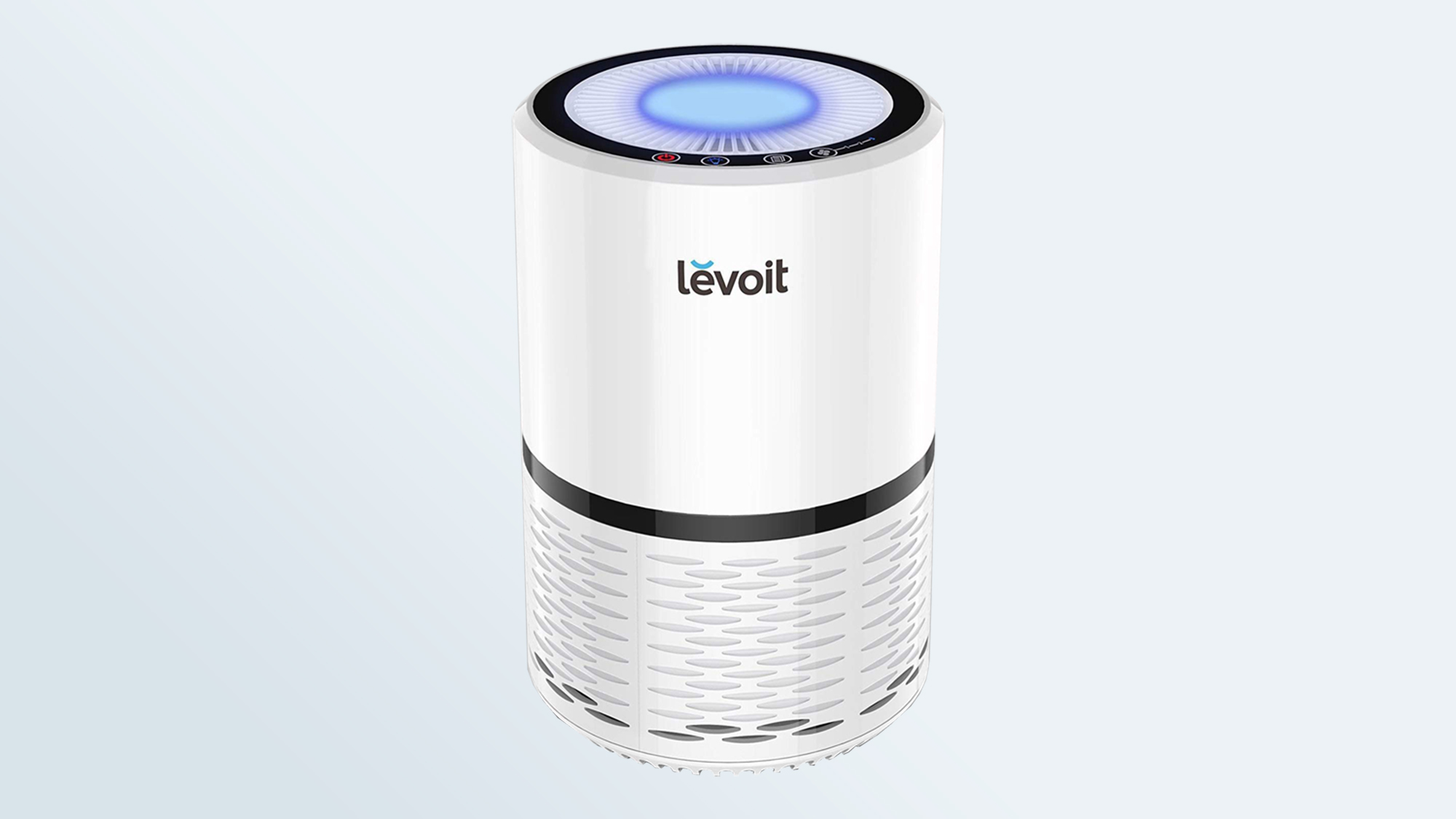
The Levoit LV-H132 is an Amazon best-seller and the most budget-friendly purifier on our list. Reviewers said it does a decent job for the price, especially with pet odors. It’s also a sleek machine that’s lightweight, compact and portable, so you can easily move it around your home.
At this price, you can’t expect bells and whistles — and the Levoit LV-H132 doesn’t have any. There is no programmable timer, and the device’s filter indicator light reminds you to check your filters but does not tell you when it’s time to actually replace them.
You have to toss all three filters every six months to a year, as the pre-filter isn’t washable. But two replacement sets will cost you just $30.
Reviewers report that the Levoit LV-H132 is fairly loud on higher settings, so sensitive sleepers may struggle to use this unit in their bedrooms. The buttons are also reportedly finicky — they may stick, freeze, or quit working altogether.
If you’re looking for an inexpensive air purifier — or want several machines to cover multiple bedrooms in your home — the Levoit LV-H132 is a decent unit to start with. Truthfully, though, it’s probably worth it to spend a bit more for a better device (like the Blue Pure 411) than to compromise with the Levoit.
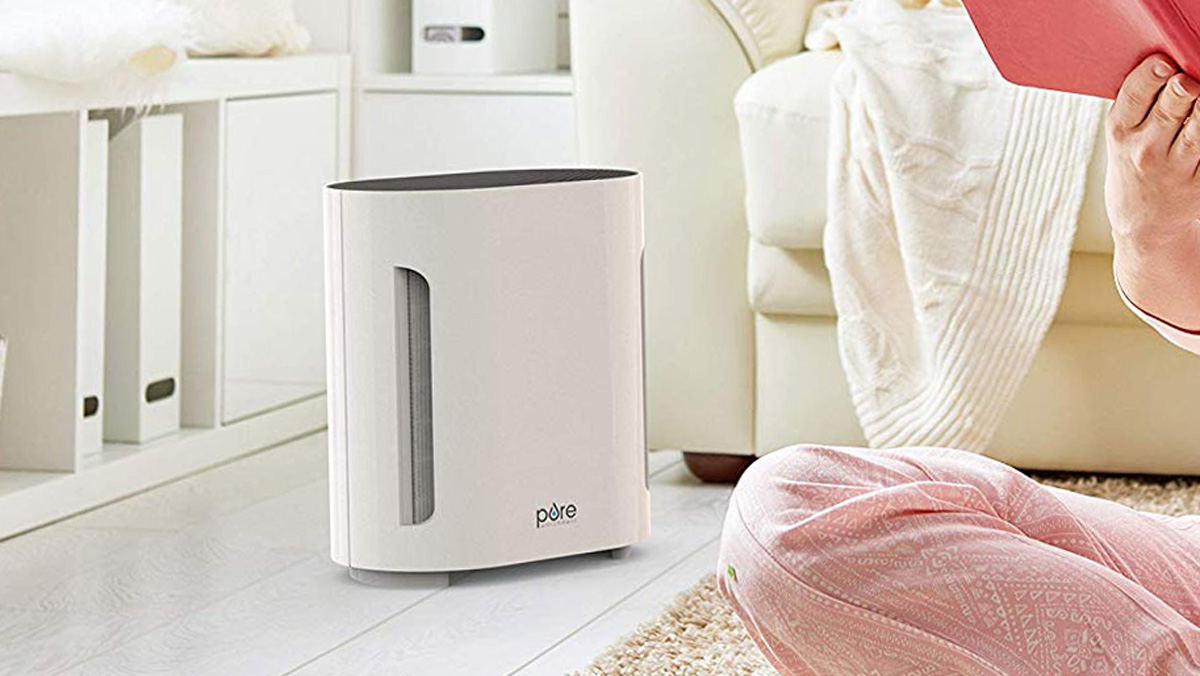
The PureZone 3-in-1 True HEPA Air Purifier is another popular (and budget-friendly) model among customers. It’s small, sleek and unobtrusive, which makes it a good choice for those who care about aesthetics and decent performance.
What sets the PureZone 3-in-1 apart is its quiet operation. It’s soft on lower settings and has an automatic timer that can shut the device off while you sleep. This makes it a good option for bedrooms and babies’ rooms where noise and light disruption matter. The device comes with a five-year warranty, longer than other machines at similar prices.
The PureZone 3-in-1 has one of the lowest CADR ratings of the devices on this list (80 cfm) and reportedly has a weak fan that limits it to small spaces, but reviewers say that it’s effective at filtering most common air particles.
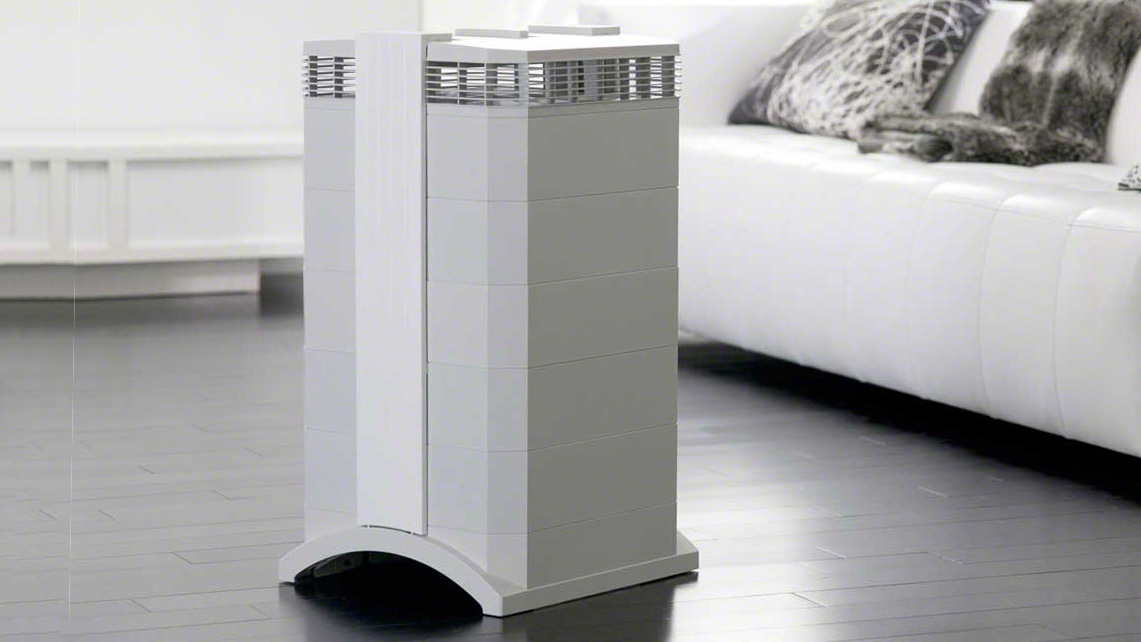
Let’s state the obvious: the IQAir HealthPro Plus is expensive. At around $900, it’s several times the price of many other picks on our list.
But if you’re serious about air purification, this machine is well worth your consideration. It uses HyperHEPA filters, which reportedly retain particles at a rate 100 times higher than standard HEPA filters, as well as a secondary filter for odors and gases.
The IQAir HealthPro Plus also covers a huge area (1,125 square feet) at two air changes per hour, and can do six per hour in a smaller room. Plus, it has six speeds, programming options, filter indicators and a remote control.
This purifier is a top seller and highly rated by experts at Allergy Buyers Club, especially for those who have allergies or other special health concerns that are affected by air quality. While it isn’t CADR-rated, IQAir tests every unit individually and offers a 10-year warranty, double the time of any other device we recommend.
While the IQAir HealthPro Plus is larger, louder and pricier than most air purifiers, reviewers say it may provide the relief those with asthma, allergies and respiratory challenges seek.
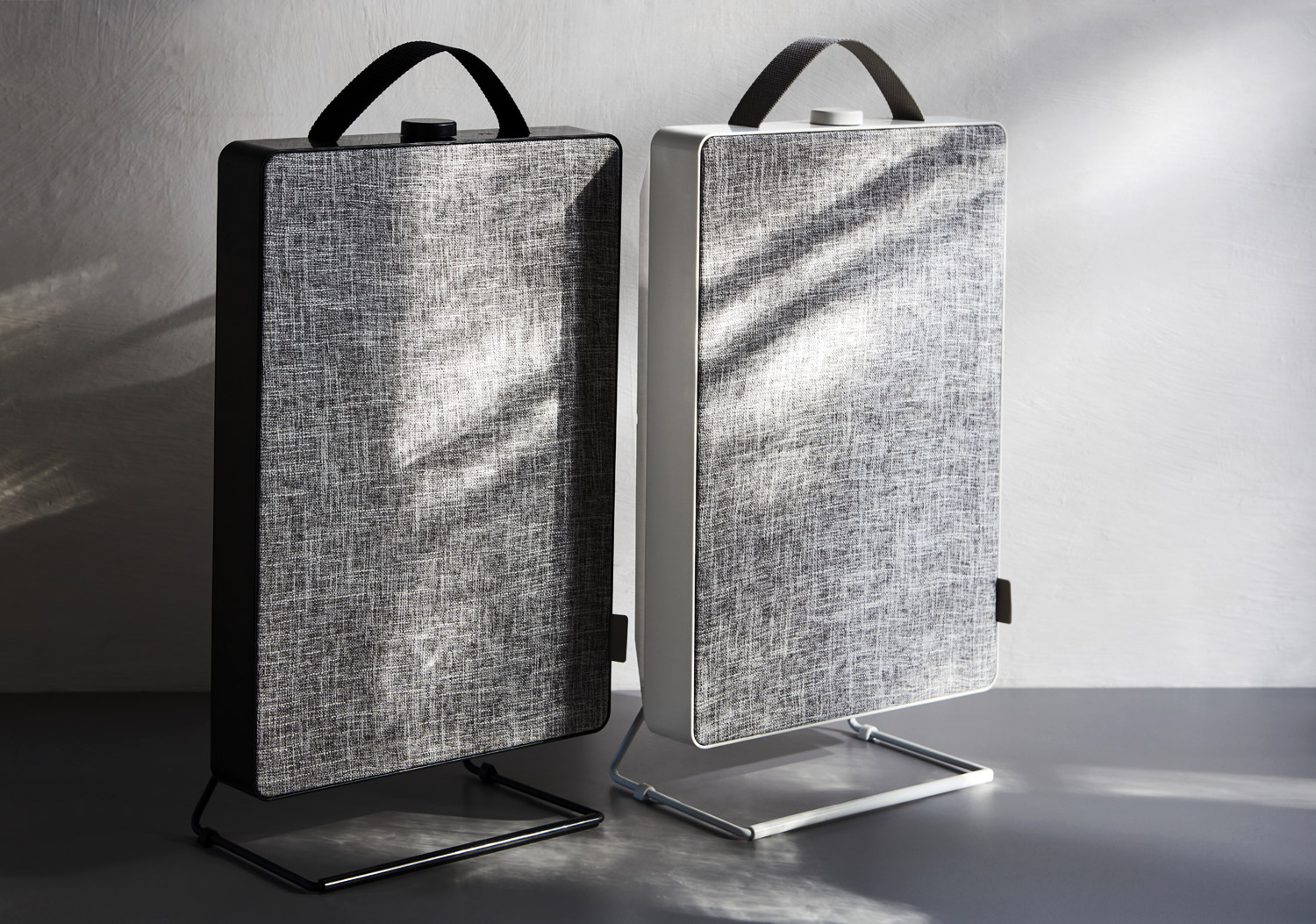
IKEA entered the air-purifier arena in April 2021 with the Förnuftig, a very inexpensive and very attractive model that looks like a Danish-modern loudspeaker. The Förnuftig is so light (less that 8 pounds) and small (12 x 18 inches) that you can even hang it on the wall.
Even the operational costs are low. The Förnuftig comes with a HEPA-like filter for small particles — replacement filters are $5.49 each — and there’s an optional activated-carbon filter for odors and VOCs that costs $9.99. You’re looking at a total yearly outlay of less than $50.
Now for the downside. A single Förnuftig can really handle only the smallest rooms, those of 108 or fewer square feet. It’s got a top CADR of 70 cfm, which barely clears the EPA minimum recommendations and is the lowest we’ve seen. And at 60 dB for the highest fan speed — the one that delivers the maximum CADR — it might get a little loud.
You could in theory just get two or three units, hang them around the house and see how you like them. Overall, the Förnuftig can’t really go toe-to-toe with the best air purifiers — but at these prices, it may not need to.
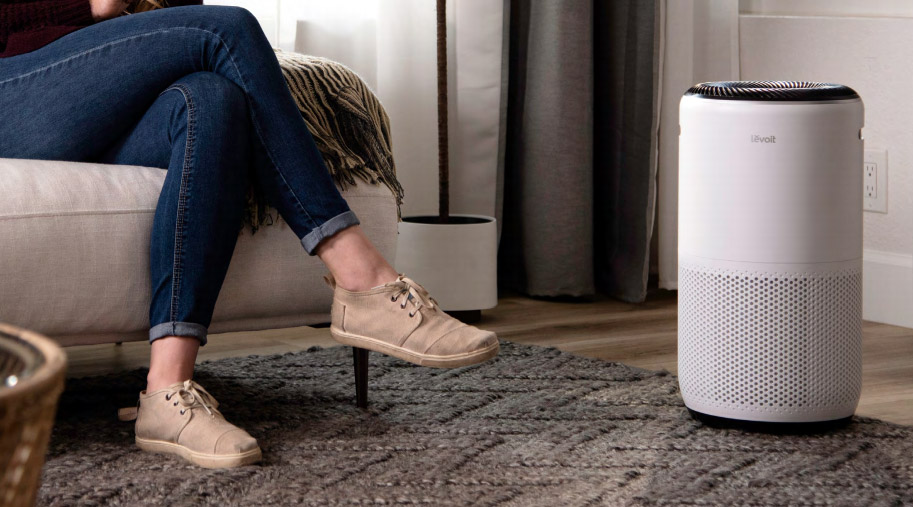
The Levoit Core 400S is one of the most attractive air purifiers we’ve encountered, and its wide assortment of features and reasonable price (about $200) make it a worthy contender among models in the 400-square-foot range. If the robot EVE from the movie “Wall-E” could be an air purifier, this is how she would look.
The white cylindrical unit has a black vent on top through which the air flows, surrounding a circular control panel. At the center of the control panel is a digital readout telling you how clean your air is, as measured by the number of particles 2.5 micrometers or smaller per cubic meter. If it’s very good, a ring of LEDs is blue; lessening degrees of air quality turn the LEDs green, orange or red.
Because the Levoit Core 400S tests your air quality, it can automatically adjust the fan speed to match. The Wi-Fi-enabled unit can be controlled via a smartphone app that lets you change fan speeds or set a timer or a schedule, whether at home or remotely. It’s also compatible with Amazon Alexa and Google Assistant.
How to choose the best air purifier for you
There are dozens of air purifiers on the market, and it can be difficult to sort out which one is the best air purifier for your home size, health concerns and price. Here are a few factors to consider.
The best air purifiers compared
| List Price | Room size | Filter | CADR (cfm) | Noise level | |
|---|---|---|---|---|---|
| Coway AP-1512 HH Mighty | $230 | 361 sq. ft | True HEPA | 233/246/240 | 24.4-53.8 dB |
| Blueair Blue Pure 211+ | $300 | 540 sq. ft. | HEPASilent | 350 | 31-56 dB |
| Blueair Blue Pure 411 | $120 | 161 sq. ft. | HEPASilent | 105/120/120 | 17-46 dB |
| Coway Airmega 400 | $650 | 1,560 sq. ft. | True HEPA | 350 | 22-52 dB |
| Austin Air HealthMate HM-400 | $595 | 938 sq. ft. | True HEPA | Unavailable | 39.8 dB – 64.5 dB |
| Honeywell HPA300 | $250 | 465 sq. ft. | True HEPA | 300/320/300 | Unavailable |
| Levoit LV-H132 | $90 | 129 sq. ft. | True HEPA | 110 | Up to 50 dB |
| PureZone 3-in-1 True HEPA Air Purifier | $100 | 200 sq. ft. | True HEPA | 80 | 30-50 dB |
| IQAir HealthPro Plus | $900 | 1,125 sq. ft. | HyperHEPA | Unavailable | 35-69 dB |
| IKEA Förnuftig | $55 | 108 sq. ft. | HEPA-like | 70 | 29-60 dB |
Air purifier CADR ratings
Most air purifiers have a clean air delivery rate (CADR) number that helps consumers understand how effective the device is in a certain room size. The higher the number, the more particles the purifier can remove, and the larger the space it can clean.
The numbers represent how many cubic feet per minute an air purifier can clean. The goal is to have all the air in a room cleaned in about 15 minutes, so a 300-square-foot room would need an air purifier with a CADR of about 200, assuming the ceilings were 10 feet high and the doors were kept closed.
Some devices have different CADR ratings for smoke (the smallest particle), dust and pollen (the largest particle).
Here are the minimum CADR ratings the Environmental Protection Agency recommends by room size:
| Area (sq. ft.) | 100 | 200 | 300 | 400 | 500 | 600 |
| Minimum CADR (cfm) | 65 | 130 | 195 | 260 | 325 | 390 |
Not every purifier is tested using the CADR rating system, but real-life reviews can give you a sense of a device’s effectiveness if a rating isn’t available.
Air purifier filter types
In general, you’ll want to look for a purifier that uses a true high-efficiency particulate air (HEPA) filter.
Government agencies and professional groups, including the EPA and the American Lung Association, recommend True HEPA filters as the standard for air purification. These filters trap 99.97% of particles that are at least 0.3 microns in size.
Some devices have HEPA-type filters, which work similarly but aren’t held to the same performance standards. The IQAir HealthPro Plus uses a HyperHEPA filter, which is believed to capture even smaller particles than a True HEPA filter.
Your purifier will likely also come with a pre-filter (some you can clean, some you have to toss after a few months) that catches the big stuff like pet fur and human hair before it reaches the main filter.
Some devices have additional filters, like carbon or charcoal filters, that trap the petroleum-based gases known as volatile organic compounds (VOCs).
Air purifier noise levels
Air-purifier noise levels range from nearly silent to steady humming, like an AC unit. Depending on the fan speed you’re using and where you’re placing your purifier, you may prefer a quieter device.
Air purifier added costs
The purchase price of your air purifier is one thing. Ongoing filter replacement and energy costs are another. For example, some machines have filters that last for years but are expensive to replace, while others work with filters that are cheap to purchase but have to be changed frequently.
You’ll also want to consider the cost of electricity. Some of the best air purifiers we recommend are ENERGY STAR certified, but each pulls varying amounts of power on different fan speeds.
Devices for larger rooms and with higher speeds tend to use more electricity. although this isn’t a hard-and-fast rule. Some devices also have eco modes. The Blue Pure 411 requires the least energy, but it covers only a small room.
Some features are more nice-to-have extras than absolute requirements. In general, pricier purifiers come with more features, such as filter indicator lights, dimmable lights and programmable timers.
Only one of the devices we recommend (the IQAir HealthPro Plus) comes with a remote control, but we’re not convinced that this adds a lot of value to the machine.
How we picked the best air purifiers
To make our short list of air purifiers for consideration, we looked at top picks from Wirecutter, Consumer Reports, Allergy Buyers Club and others, and also noted the top-selling and most highly reviewed models on Amazon, Home Depot and Best Buy. We narrowed down our list to nine models based on features, price and other factors, including clean air delivery rate (CADR) ratings and noise levels.
For all the latest Technology News Click Here
For the latest news and updates, follow us on Google News.
